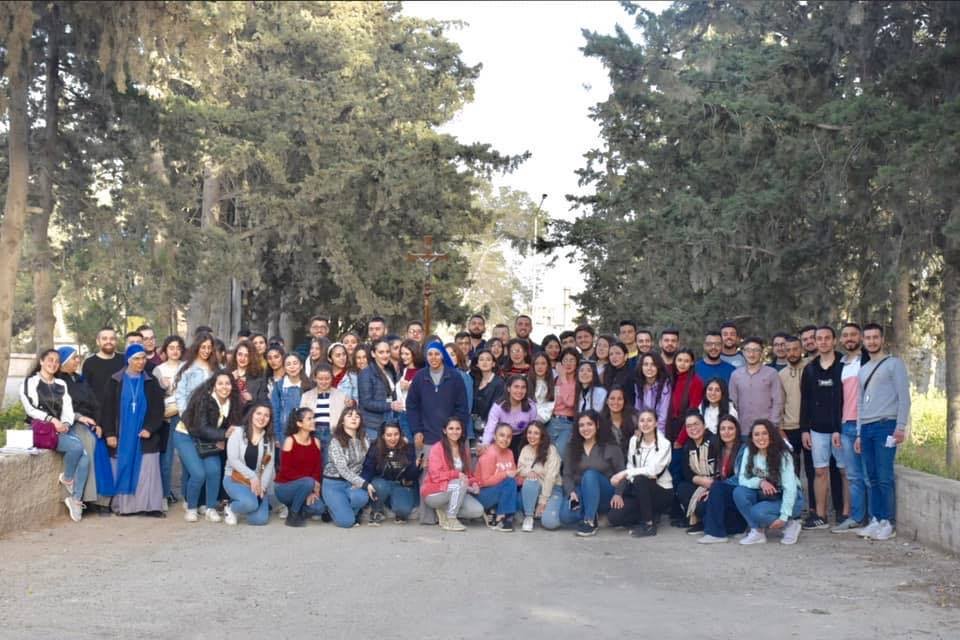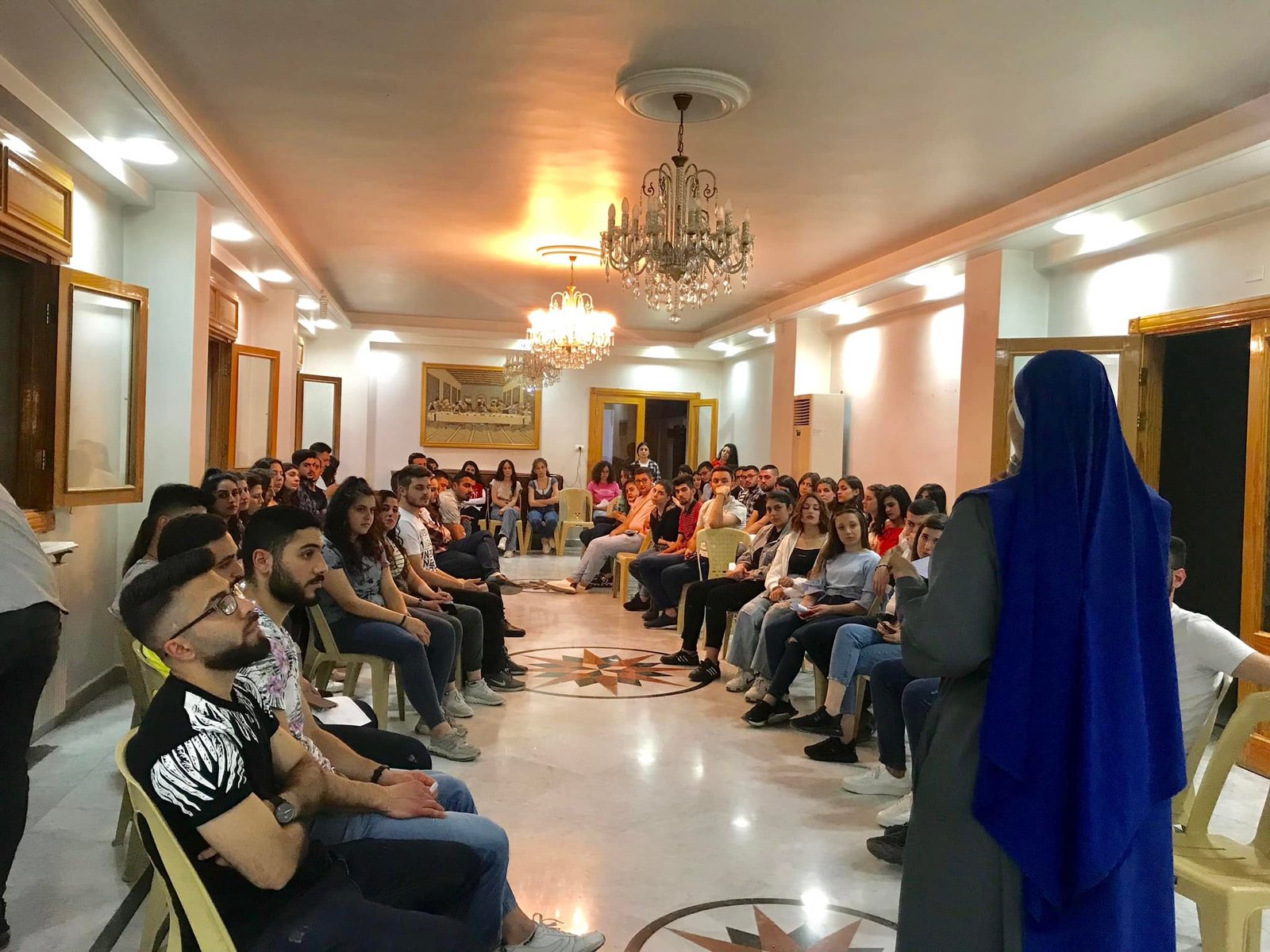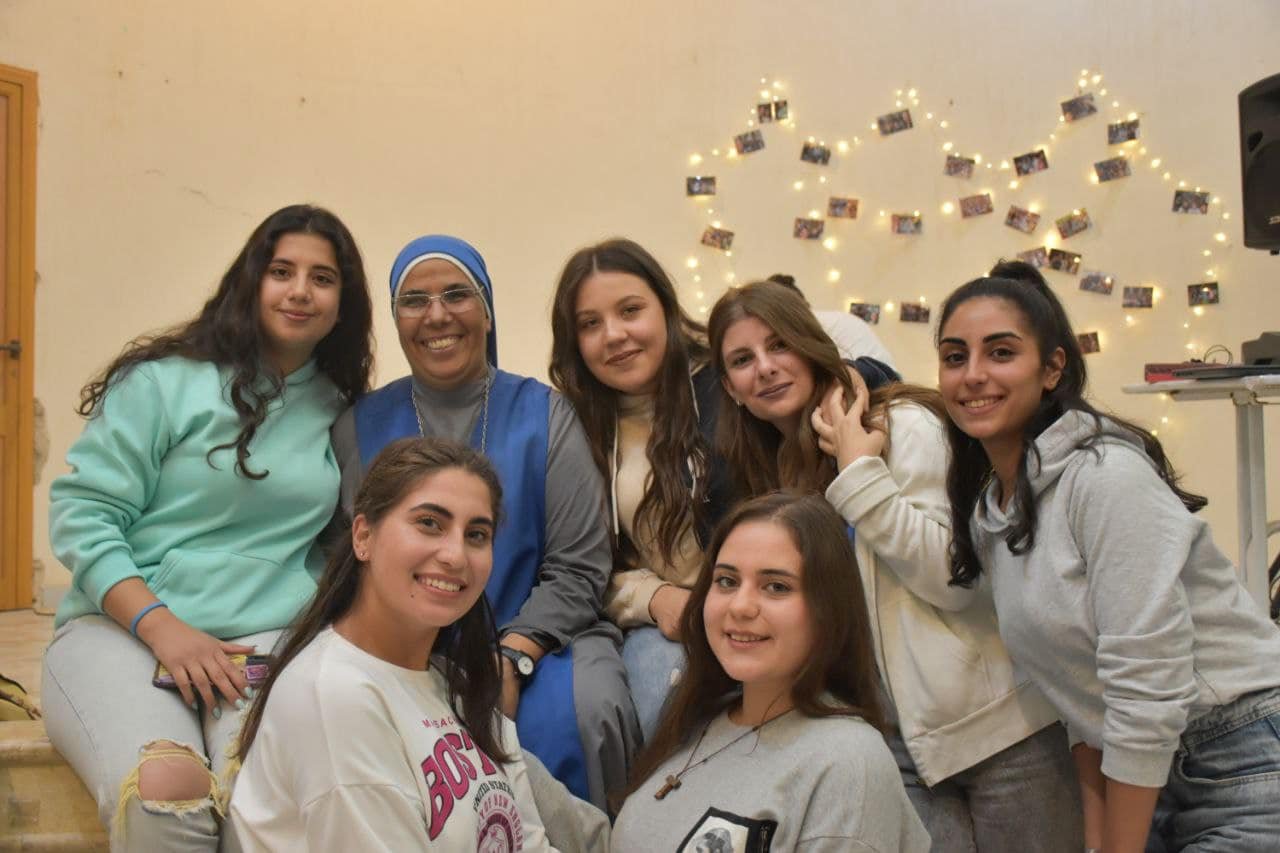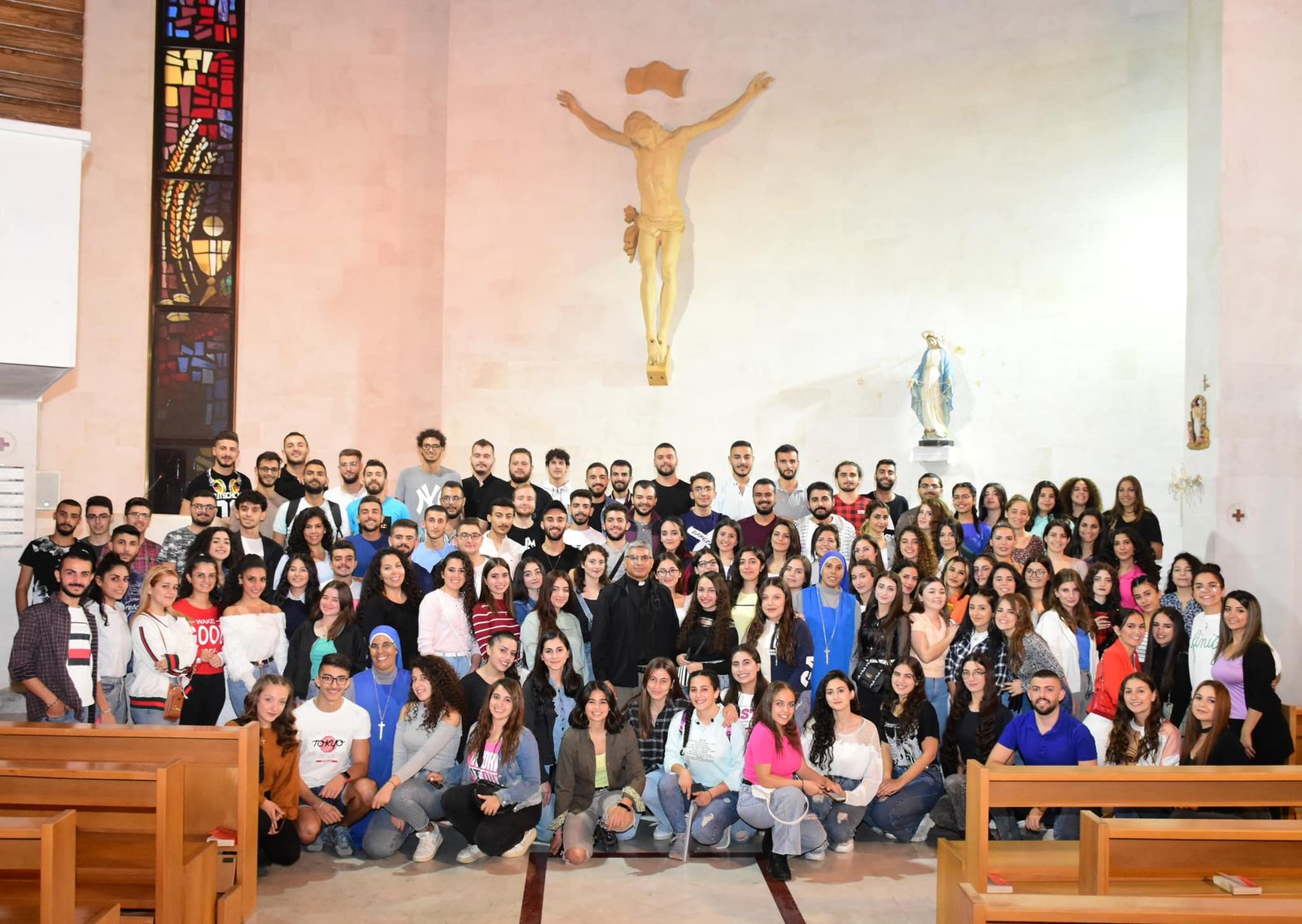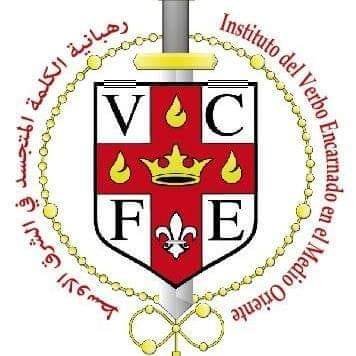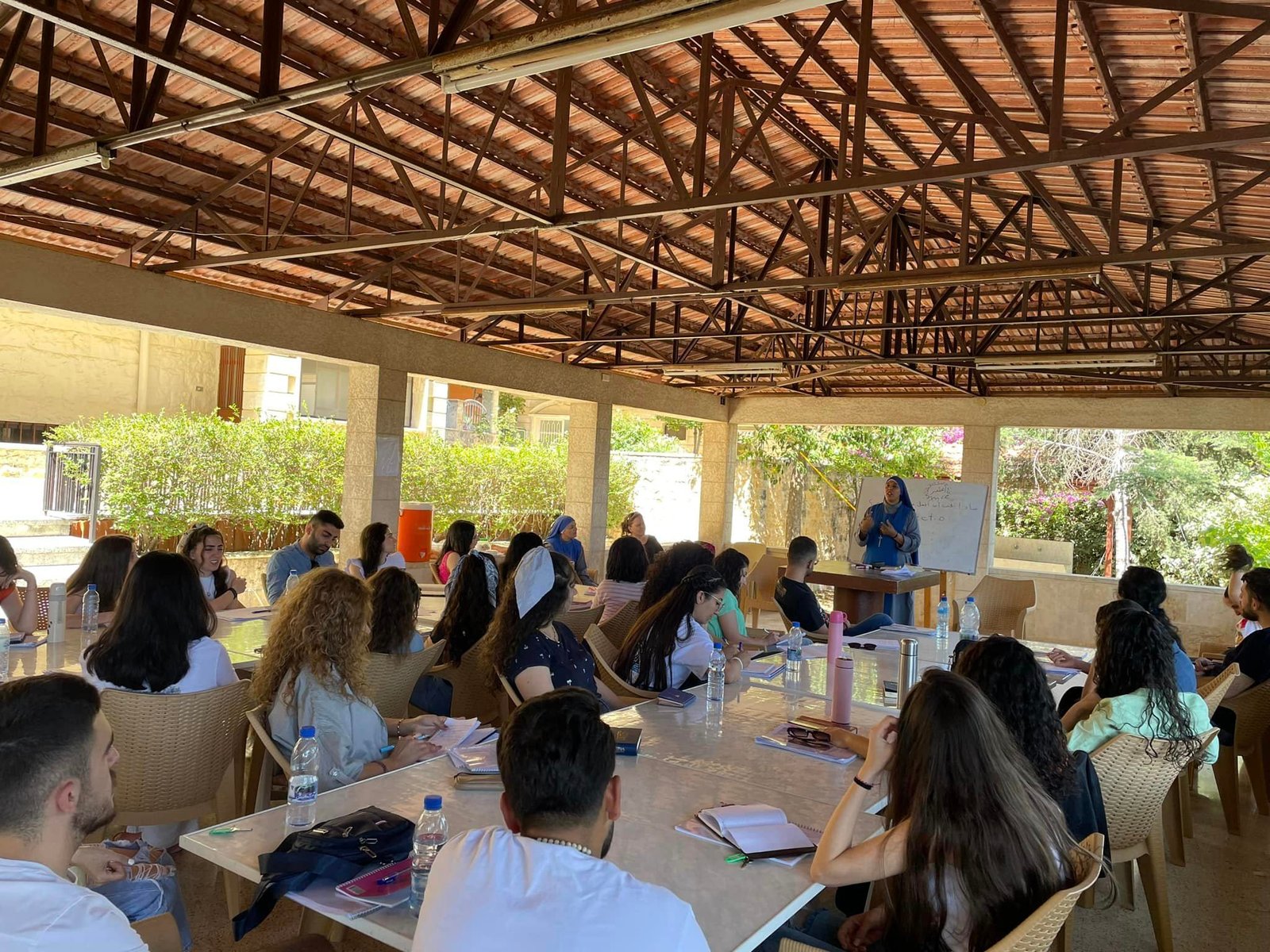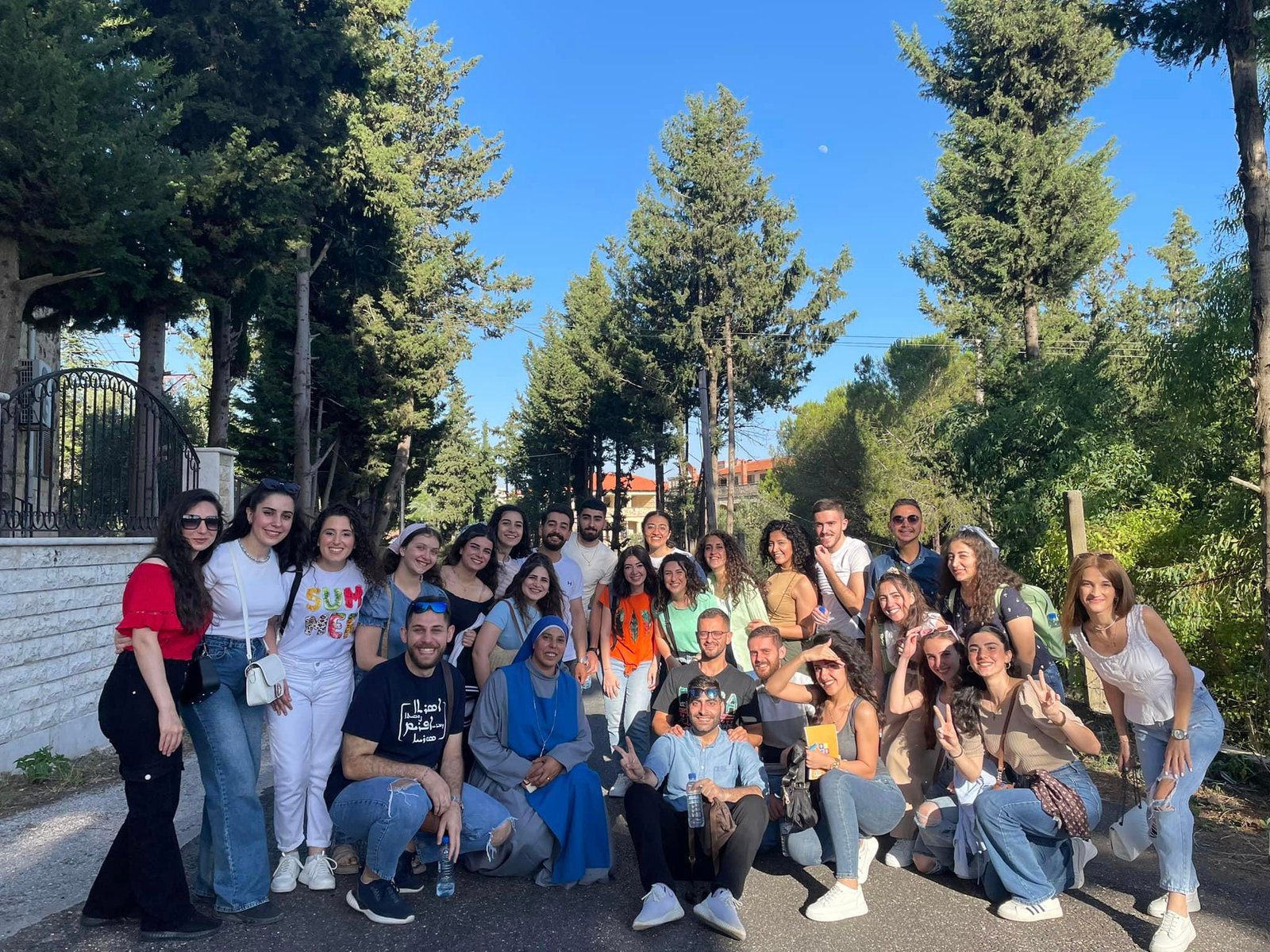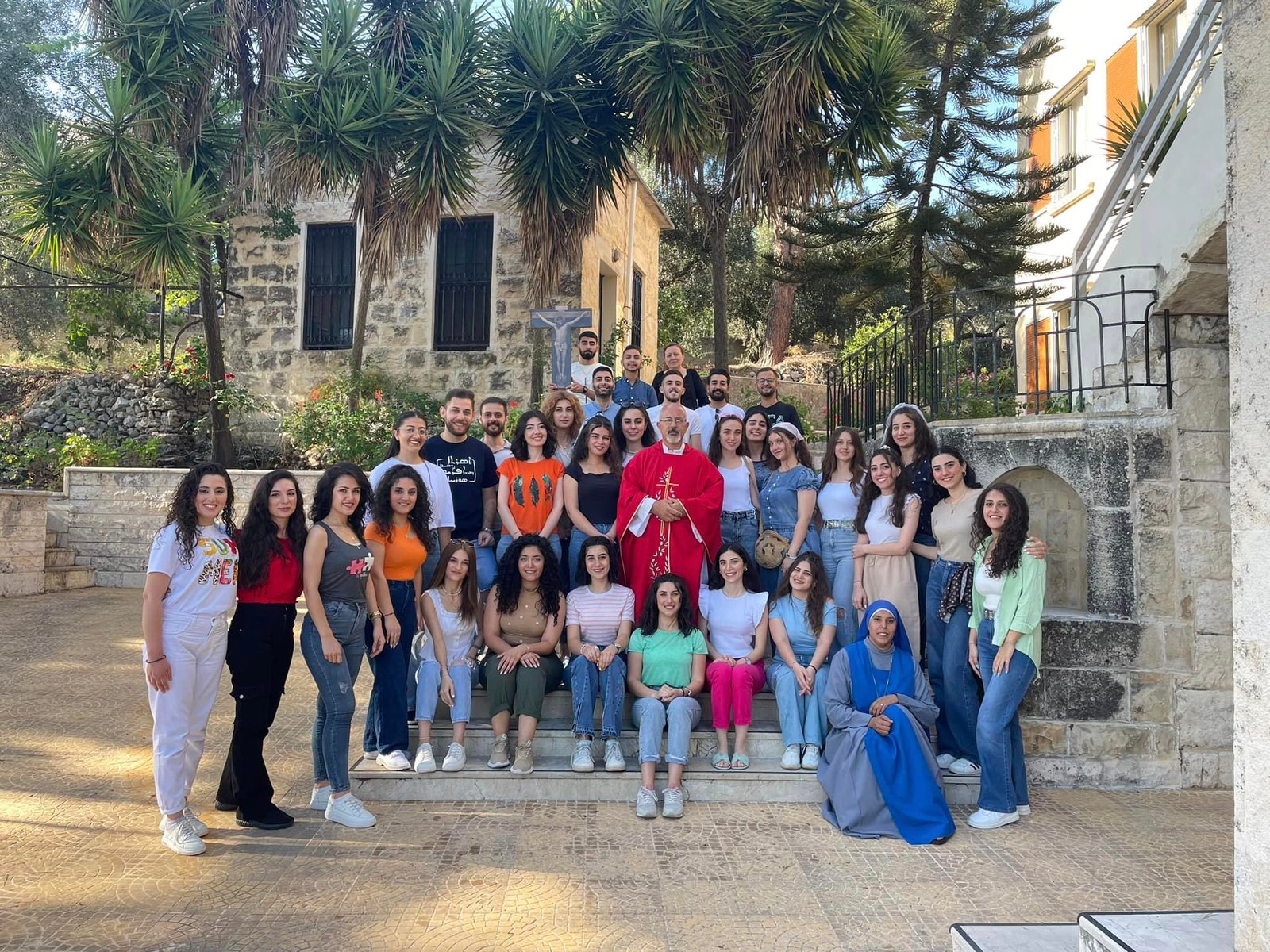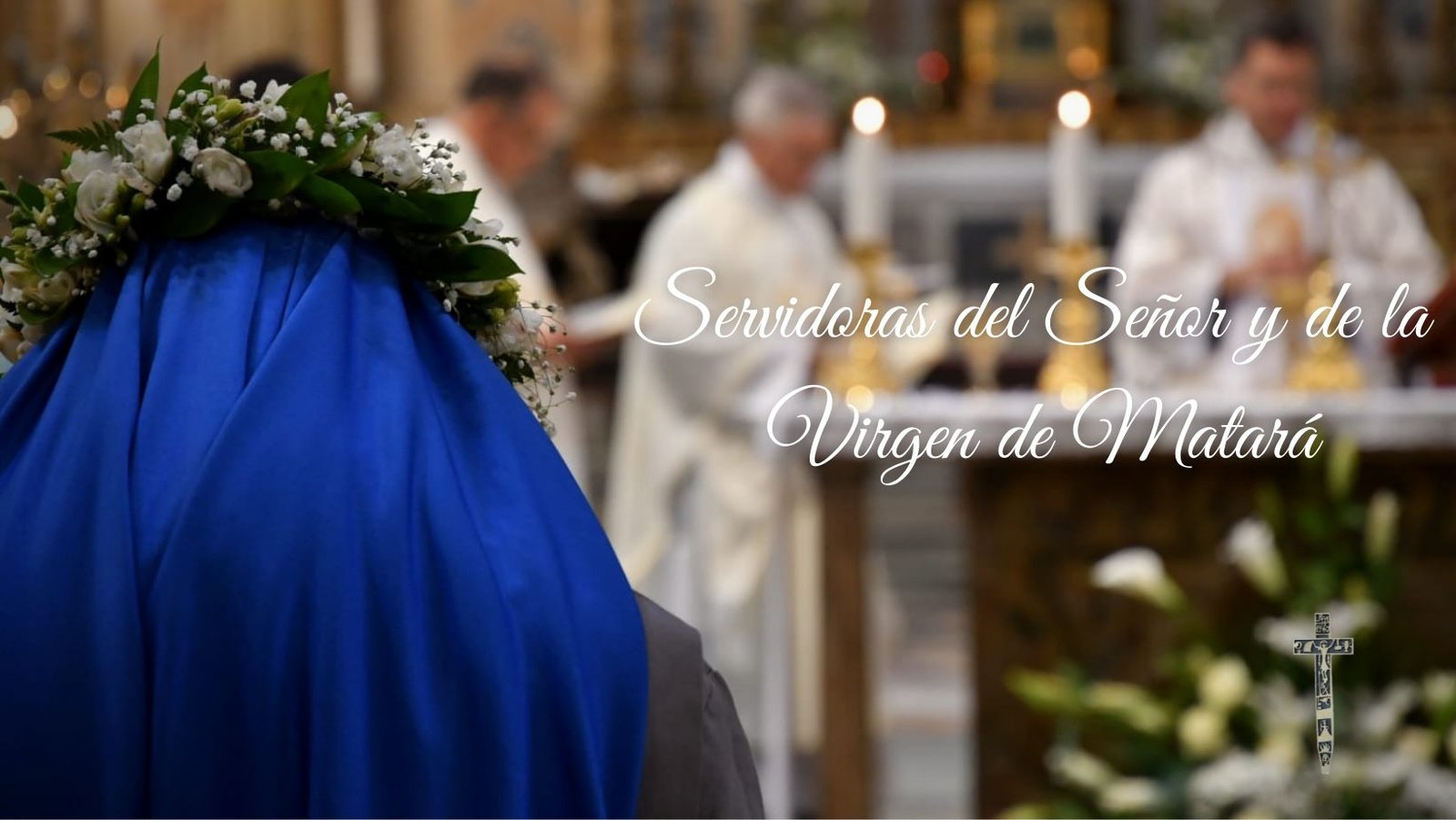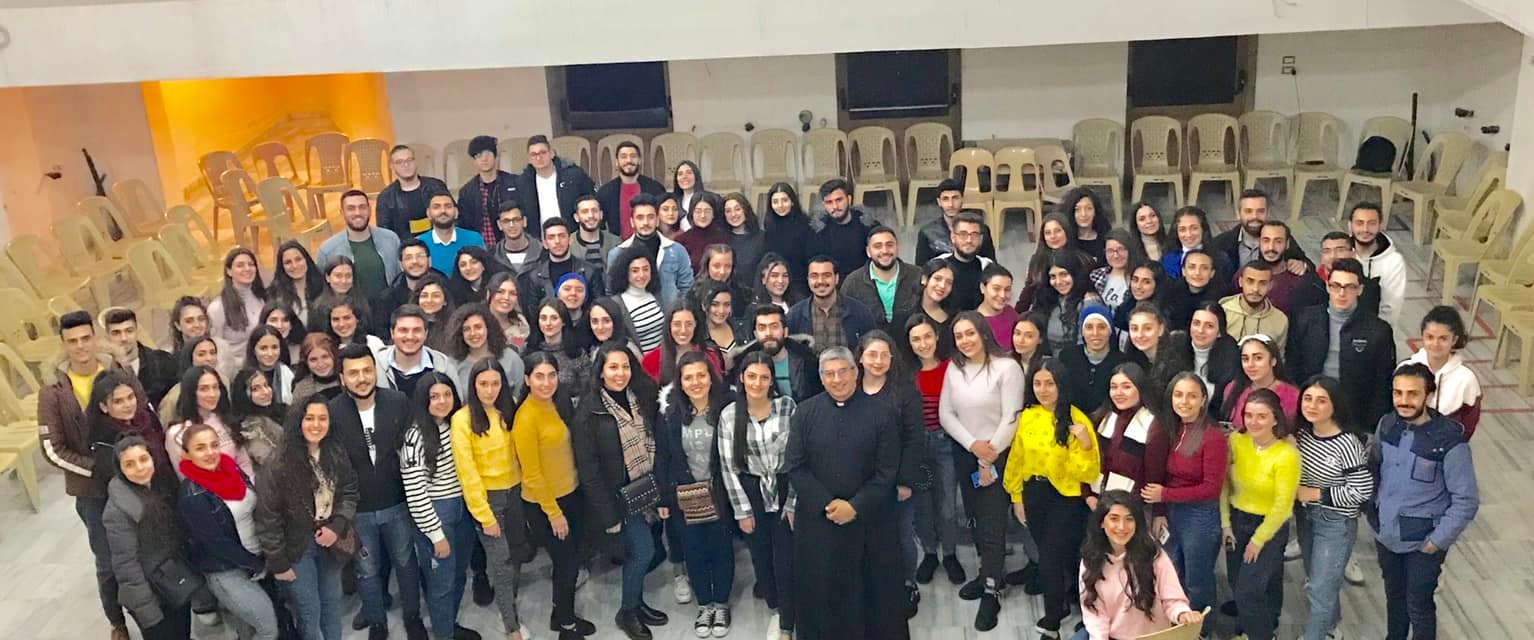
The Sisters Servants of the Lord and the Virgin of Matara
Founder of the Congregation: Father Carlos Buela
The Congregation belonging to the Institute of the Incarnate Word, founder of our religious family.
He was born in Buenos Aires, Argentina on April 4, 1941, into a religious family. At the age of eight, he received his first Holy Communion on the feast of the Immaculate Conception. At the age of 23, he entered the clerical institute in Buenos Aires and completed his studies at the institute. He was ordained a priest on October 7, 1971, at the Shrine of Our Lady of Luján in Buenos Aires. After his ordination, he began teaching theology and the Bible in various educational institutions such as different seminaries, the Higher Institute of Catholic Culture in Rosario, and the Catholic University of Argentina. He worked in various parishes in the Archdiocese of Buenos Aires. He was a spiritual director and teacher in the minor seminary and in the Archdiocese Seminary of San Rafael in Mendoza. In this Archdiocese, he was inspired by the Holy Spirit to found the Institute of the Incarnate Word and the Monastic Formation House “Mary, Mother of the Incarnate Word.” He has written several books including Christian Education for Youth, Youth in the Third Millennium, Our Lady of Luján, Bread of Eternal Life and the Cup of Eternal Salvation, St. John Paul the Great, The Servants (four parts), My Flock, The Art of Sharing, Fatima, and The Sun Dances.
He is a great promoter of Ignatian spiritual exercises, a preacher, and a founder of many houses of mercy. He was greatly influenced by the teachings of Pope Saint John Paul II. After the election of the Holy Father in 1978, Father Buela began closely following his writings and activities from his parish in Buenos Aires.
On March 19, 1988, the feast of Saint Joseph, Father Miguel Carlos Buela founded the religious order: Servants of the Lord and Virgin of Matara, the female branch of the religious family of the Incarnate Word. The founder’s goal is “the desire to give Jesus Christ brides according to His heart,” which came about when some girls expressed their desire to consecrate themselves to God, following the spirituality of the religious order of the Incarnate Word. Saint John Paul II wrote in his letter Mulieris Dignitatem about the dignity of women: “The woman, called from the beginning, to love and to be loved, in her virginal vocation finds Christ above everything, as Redeemer who loved until the end through the total gift of Himself, and she responds to this gift with the sincere gift of her whole self.” The nuns took their name from the Matara cross, a wooden cross made by one of the indigenous people in Argentina. This cross became their symbol and a part of their religious habit to remind them that “For I decided to know nothing among you except Jesus Christ and him crucified” (1 Corinthians 2:2).
On this cross, there is an engraving of our Lord Jesus Christ. At the foot of the cross is the first servant of the Lord, the Blessed Virgin Mary. This not only signifies the reason for the existence of the religious order, but also the place, mission, and message of the “servants,” who are meant to follow in the footsteps of the Virgin Mary. In this way, the female branch of our religious family achieves what we wanted to give the name of the Incarnate Word to the male branch for.
As for their apostolic work, they assist the priests by teaching Christian education, organizing oratories (youth groups), participating in popular missions, and in works of mercy (caring for abandoned children, the disabled, and the sick). Some of them are distinguished by their vocation to live a contemplative life, and thus they are sent to contemplative convents where they dedicate their lives to prayer, meditation, and austerity.
Talent
We want each person to become a new embodiment of the Word. As for the special talent of the religious life, all its members are required to work with complete obedience to the Holy Spirit and in a Marian spirit, so that they submit to the sovereignty of Christ in all that is truly human, even in the most difficult situations and under the most adverse circumstances.
This means acquiring the necessary grace to know how to work – in a tangible way – to ensure the continued presence of Christ in families, education, media, intellectual circles, and in any legitimate aspect of human life. This is the gift that enables us to reach the point where every person becomes “a new embodiment of the Word”, by fundamentally being sent and Marian.
The purpose is embodying the Gospel in the life of every person to let the mystery of salvation reach everyone and to embody it in their lives. Just as in every community (congregation) for consecrated life, we also have a common or shared goal – usually called a calling – we seek, by it, to follow Christ more closely, obediently subject to the work of the Holy Spirit. Our specific goal is to fully dedicate ourselves to evangelize the community, carrying the Gospel to society in all its cultural and civilized aspects. This motivates us to work with all our strength to spread and embody the Gospel in the life of every person, spreading the mystery of salvation to all and embodying it in their lives. This is evident in our being a family; we highlight public vows and live a communal fraternal life; the public witness we must give includes the reality of separating from the world. For a life according to the Holy Spirit necessarily requires us to exclude the spirit of the world from us: the spirit of truth… the world cannot receive it because it neither sees it nor knows it (John 14:17) (from canon 25). Finally, through the specific and unique goal, we want to dedicate ourselves to proclaiming culture itself, in the sense of working to “use the power of the Gospel to transform (from canon 26):
- Standards for judging matters,
- Defined values,
- Points of interest,
- Lines of thought,
- Inspirational sources,
- Examples of life for humanity.
In order for the power of the Gospel to encompass:
- Ways of thinking,
- Standards of judgment on matters,
- Criteria for action, as we must not forget that the Second Vatican Council declared: “The state of divorce between faith and daily life for many must be seen as one of the most serious errors of our time.” This is largely due to the fact that the world, in recent centuries, has “gradually drifted and separated from the Christian context of its civilization,” leading its culture to a state of non-Christianity.
The spirituality
Our spirituality is entrenched in the mystery of the Holy Incarnation, and in the sacred mystery of the Word that became flesh in the womb of the Virgin Mary, the Holy Theotokos.
We live in a special way the three aspects of the Incarnation:
First – the foundation: We must have a deep and profound piety for the Holy Trinity, which is the active principle of the Incarnation and everything related to it: for the Father in that He is the beginning of the Son – “For I came from God and I am here” (Jn 8:42) – and for the Holy Spirit in that He is the personal love from which all divine works flow – through the action and grace of the Holy Spirit.
Hence, the priority of everything spiritual in our thoughts, feelings, and actions also springs from this, as God is the one who works in us both to will and to work for His good pleasure.
Secondly – the two natures, divine and human: We want to live fully in noble values: faith, hope, and love, so that we may become salt… and light… (Mt 12:13) in order not to be of the world. Hence the necessity of continuous prayer – pray without ceasing (1 Thess 5:17)- and the necessity of purifying the senses and the spirit positively and negatively, for unless you repent, you will all likewise perish (Lk 13:3).
We want to live fully in the values of self-denial: humility, righteousness, sacrifice, poverty, pain, obedience, and compassionate love … all of which is summed up in one word, to carry the cross. We must be in the world and bear in Christ all that is human, for what is not borne on the shoulders cannot be redeemed, and “representing a new idol with an old malice.” Therefore, the priests – as spiritual guides – must enlighten temporal matters and educate the secular, so that they can “act and organize temporal matters according to the will of God” and not take what should not be taken, such as sin, delusion, lies, and evil: avoid every kind of evil (1 Thess 22:5).
Thirdly – in regard to the unity of the two natures: The centre of our lives must be Jesus Christ, the true God and the true human who unites in his unique divine person both natures, in whom we confess the truth that the Word became flesh (Jn 1:4), that he is the mediator between God and humans (1 Tim 2:5), and that he alone has the words of eternal life. He is the person who is the ultimate goal of the Incarnation. Our worship of Jesus Christ in the mystery of the Incarnation must be manifested in a special way; and in his self-emptying once again in the mystery of the passion – the supreme priestly act – which makes us marvel, through this wonderful contradiction, in the deep self-emptying “kenosis” present in the Incarnation; as well as in the mystery of his second coming which will complete the fullness of his first coming.
Here, three things, which we consider the White things of the Church, adhere closely to the sacrament of piety, which was revealed in the flesh (1 Tim 3:16), and thus are also related to our love, namely:
- The Eucharist, which continues through the work of the Catholic priesthood, i.e., the incarnation through the elements of bread and wine.
- The Virgin Mary, full of holiness, who said yes so that the Word would become flesh from her flesh and blood.
- The Pope, who is the personified presence of the truth, will, and sanctity of Christ.
Life of Prayer:
Our spiritual life is based on two fundamental elements: the divine liturgy and adoration of the Holy Eucharist.
The divine liturgy: it is the centre of our life, for in it, Christ, who is the great eternal priest, offers his salvific sacrifice continually on the altars of the whole world, thus the effects of his passion reach all humanity in all times. The liturgy is the most distinguished ritual act, and the liturgy is the peak to which all its strength is drawn, from which grace descends to us… and through it, human sanctification is achieved in Christ effectively, glorifying God, which is the ultimate goal of all the actions of the Church (from Canon 137). Adoration of the Holy Eucharist in a special way, we must work on the perseverance and adoration of the Holy Eucharist: at a specified hour daily – as much as possible – and also continuous worship in every region and in every house separately, as the worship of the Holy Eucharist represents the most perfect act because it shares with Mary in her earthly life, when she worshipped Him while He was in her virginal womb, in the manger, on the cross or in the divine Eucharist. It also represents the most sacred act as it is considered the complete practice of all virtues: faith becoming complete and perfect when Jesus Christ, hidden and crushed inside the Holy Eucharist, is worshipped; as well as hope – so that we may be able to patiently await the glorious heaven, and for Christ to lead us to that heaven – Jesus created the beautiful heaven of the Eucharist; and also love, as love, which is the entirety of the law, is fulfilled through the worship of our God and Lord, in the Holy Eucharist, with all the mind, all the heart, all the soul, and all the strength; through worship, complete love can also be practiced with neighbours, praying for them and interceding for them to receive grace and mercy from the Saviour. The most charitable act is to worship Jesus Christ on behalf of those who do not worship Him, those who abandon Him, forget Him, do not appreciate Him, and mistreat Him. (From Canon 139)
The Liturgy of the Hours:
It is usually prayed with the congregation. The Liturgy of the Hours achieve the continuity of the “priestly role” of Christ (through the Church that praises the Lord incessantly and intercedes for the salvation of the whole world). The Liturgy of the Hours “are the source of piety and nourishment of personal prayer” that must be done with “the understanding that everyone who fulfils this role, while praising God, stands before His throne in the name of the Mother Church.” (From Canon 138)
The Holy Rosary:
In it, we contemplate the work of redemption that Jesus Christ took upon Himself and in which His mother participated. “The Holy Rosary is an offering of praise to God for the benefit of our redemption and is a remembrance of the sufferings, death, and glory of Jesus Christ.” The Rosary is a “compendium of the entire Gospel”, “it is a Gospel prayer centred on the redemptive incarnation” in which the litany-like succession of “Hail Marys…” becomes an unceasing praise of Christ.
We desire to summarize our spirituality as follows:
Not Jesus or Mary; not Mary or Jesus
Not Jesus without Mary; not Mary without Jesus
Not only Jesus, but also Mary
Not only Mary, but also Jesus
Always Jesus and Mary; always Mary and Jesus
Towards Mary through Jesus: “Behold, your mother” (John 19: 27)
Towards Jesus through Mary: “Do whatever He tells you” (John 2: 5)
First: Jesus; the God Human
But coming after Him is Mary, the Mother of God
He is the head; she is the neck; and we are the body
Everything for Jesus and for Mary; with Jesus and with Mary.
in Jesus and in Mary; for the sake of Jesus and for the sake of Mary
And finally, and simply: Jesus and Mary; Mary and Jesus
And with Christ towards the Father in the Holy Spirit.
Our mission in Syria:
The Sisters Servants of the Lord and the Virgin of Matara (the Incarnate Word), arrived in Syria – Aleppo – at the Apostolic Vicariate in Al-Shahbaa Al-Jadida – Al-Amara Square in 2008 in response to the request of Bishop Joseph Nazzaro, the Latin Bishop in Syria, with the desire to care for the acceptance of female college students in housing and the care of the sacristy, meaning pastoral care in the Cathedral of the Child Jesus.
Our mission today:
We continue to work under the sponsorship of our Bishop Hanna Jallouf in the Apostolic Vicariate in 2023:
- Caring for college students’ housing, with 42 female Christian students from different Syrian provinces, all of whom are Christians.
Goal: To welcome and host Christian girls in order to provide Christian, humane, and social upbringing alongside academic life. Therefore, it is requested that those joining the convent commit to weekly masses and some suggested activities to achieve this goal. Their main goal for being in the convent is for study.
- Caring for the church and pastoral activities such as youth brotherhood with around 200 people, women’s brotherhood with around 15 women, third order brotherhood, family’s brotherhood with around 80 people, visiting Christian families, providing financial assistance, and helping school children.
- Attending to internal administrative affairs of the Archdiocese as requested by the bishop.


